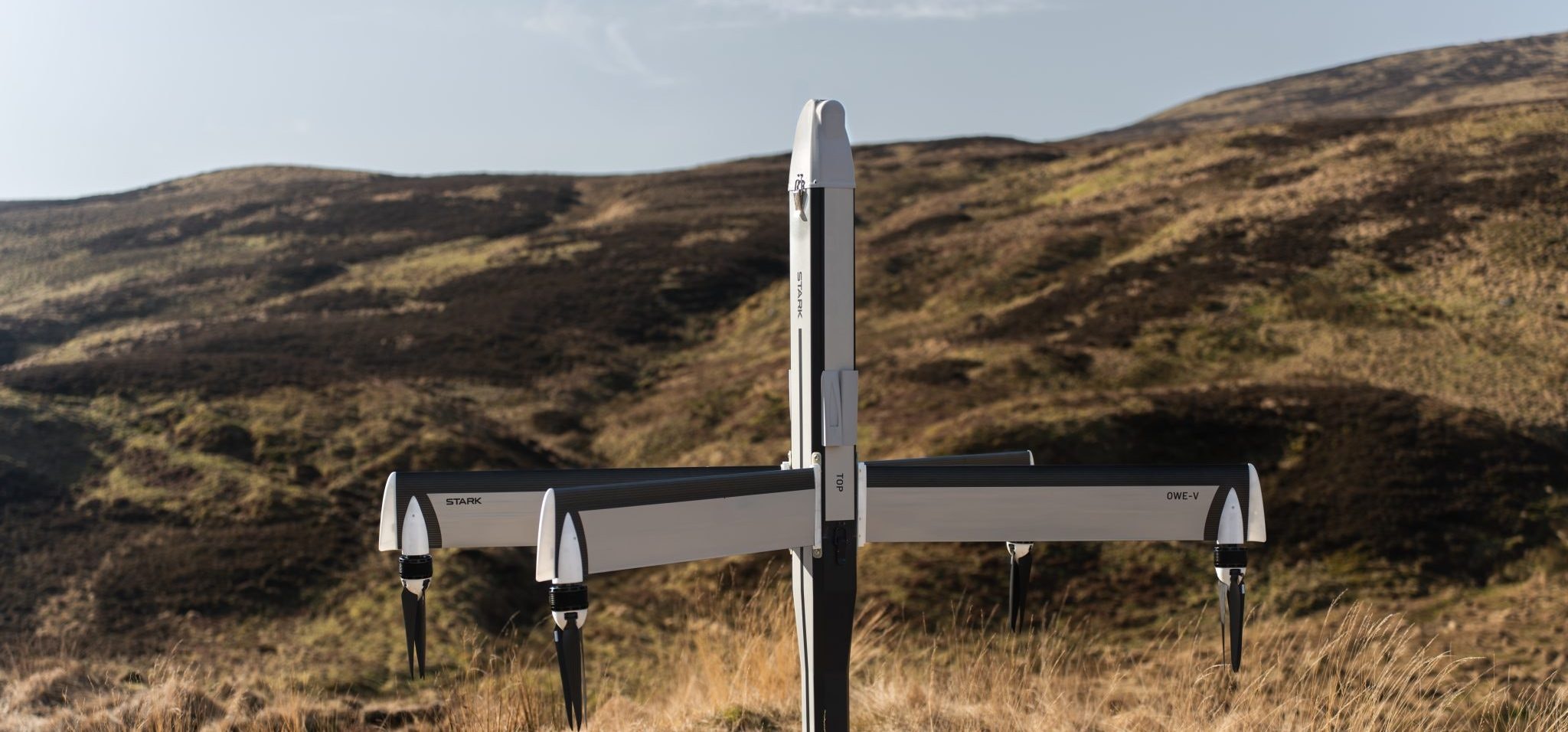Rob Lacher, founding partner at early-stage VC Visionaries Club, has thrown investment hypotheses out the window.
“It’s a bit ‘21,” he said, on the latest episode of the Sifted Podcast. “The moment you have a hypothesis, it's outdated — just look at AI.”
Also binned: the certainty that SaaS unicorns will return funds (“a lot of the software companies have become old timers, and I think will die”).
As an investor in buzzy AI agent startup Lovable and SaaS unicorn Personio, Lacher is well-placed to have a view on both fronts.
But a third area — defence — has been taking up a lot of his time recently, as he discussed on the Sifted Podcast. Read on for a lightly-edited summary of Lacher and Sifted editor Amy Lewin’s conversation on European defence tech.
Your investor base consists of dozens of European unicorn founders, alongside entrepreneurial family businesses. What’s a good example of bringing together those two worlds?
We recently invested into two defence companies. We're not making these deals public for certain reasons — but to give an example, one company that is already quite advanced, doing €100m in revenue, have built a really leading technology in defence, and they want to enter more European markets and more US markets. They're already active here, but not to a scale like some of the local players. And if you look at defence procurement, it's very complex, because you don't just sell one drone or one system. You have to integrate with the whole system stack... For example, the Royal Navy or the German army, might say, ‘Look, we're maybe needing an ISR [Intelligence, Surveillance and Reconnaissance] solution for the NATO eastern flank, and that consists of a combination of drone systems, tank systems, missile systems.’ So when you go into these RFQs [Request for Quotation], you need to integrate with the other defence players. Within only two weeks, we were able to connect the founders of this company to Dassault, which is a French family business and a market leader in French defence; and to KNDS, which is a German market leader developing the Leopard 2 tanks, which is also partly family owned. We gave them, I think, a three-year shortcut.
Where are you seeing especially interesting companies come through in defence?
We've invested in quite a few companies, but most of the companies we’ve backed are quite active already and quite effective within the battlefield, so they're not that interested in a lot of LinkedIn noise or public marketing. So that's why so far, we've agreed with them that we neither make our investment public, nor do they have an interest to speak to certain media. We have deep respect for defence. It's something different to a Lovable, to a software company, because defence means, you know, battlefield. It means lives are at stake. It means something very critical for Europe to get right. And I think a lot of this happens better in stealth than if things are too public.
A lot of this happens better in stealth than if things are too public
So we're trying to find a good balance, to be honest… VC is the most buzzy industry, and people love posting on LinkedIn about another great round and another great ARR step. People love showing off with their investments, and love sharing stuff at dinners. But when it comes to defence, VCs need to be careful — including ourselves — about how to approach it, because right now there is a lot of momentum in Europe, because the public media is suddenly super excited about it. The people that were climate VCs three years ago are now defence VCs. But the more impactful a technology really is in the battlefield, the less the companies would be interested in making that public. Having said that, I don't want to put out a bad word for people who are public in defence, because I think it's great that this topic is now becoming a core of the public discussion, that we get our society behind this shift from being in peace for 50 years to ‘Hey, why are we building a big army again?’ Especially in countries like Germany, where because of our terrible past, it has been a very far way to build our own military again. So that's why I have great respect for companies like Helsing and others that are creating a bit more public momentum and really educating society about this.
What are the key things that the defence companies you're working with need? Is the big goal for all of them procurement by governments? What are some of the other key challenges for them? I'm imagining raising money is maybe not so hard for them, given it is a buzzy area.
It’s a great question, because for me, personally, it's the most complex and the most interesting space I've ever been in as a VC. Defence is the most complex thing I've ever seen, because it's an intersection of software and hardware right now, which is kind of something new, and the space entirely got disrupted. If you look at the modern battlefield in Ukraine, which is right now the core battlefield that we have here in Europe, 70 to 80% of the takeouts happen through technologies that have been invented in the last four years, aka drones, and these technologies are not conventional weapons. So managing that disruption is already one thing.
Educating the political leaders about this in countries like the UK and Germany, where these political leaders and army leaders, which are two groups, again, that are part of the procurement, sometimes have a career of 30 or 40 years, and some of them have been Eurofighter pilots, and now they are leading aerial defence stacks or Air Force stacks, and convincing a general there that you won't see any fighter pilot or any kind of manned aircraft anymore at the front line is something that takes a lot of effort and a lot of patience, because these people have a certain aura… and they've been in Afghanistan and all these situations.
And then on the hiring side, getting people attracted and getting into these syndicates of other tech stacks, it's incredibly complex, because on the one hand, the European army is rebuilding its software stack to have an independent, even open source, tech that they could connect to, maybe a Helsing system, maybe a Skyeton system from Ukraine, or maybe Quantum Systems, Tekever… and then the conventional web systems. So this is an incredibly complex exercise for Europe.
Even if you have the best product and the best hardware and software, it doesn't mean that you get procured
Overall, it's incredibly complex for a young company to get into this, because if you have the best product and the best hardware and software, it doesn't mean that you get procured. You might have to localise, like if you're a German company and you want to sell to the UK, you might have to build a factory in the UK, to have a local IPE [Information Provided by the Entity] so that there is no risk for for the UK to procure from someone because it's security critical, you have to lobby to the right political leaders here…
So it's an exciting time, and the last point is, this is happening basically in real time, we were having a dinner in Munich a few weeks ago with Helsing founder Torsten Reil and others, where we said, ‘Look, it's not about a five year project here for Europe. It's about the next six to 12 months, to have a first move to get us kind of in a semi-competitive position.’ So we're talking AI disruption speed in an industry that has been 10 to 15 year project cycles, the slowest moving in the last 20 years, and where some of the companies like Airbus are giants that are used to long project cycles.
Which governments in Europe do you feel are most innovative or forward thinking on defence at the moment? I’m guessing Ukraine…
Ukraine is insane. Another government that is really doing it well is the US, because the US is so deeply involved in the intelligence of weapon systems in Ukraine that they try to gain a lot of insights from how modern warfare has changed, and they get a lot of insights on how their conventional systems might get disrupted. They try to connect the dots, even with their own defence companies; for example, Ukraine drone startups might have built something innovative, or a counter drone defence solution, and they really try to connect the dots to make products happen that make sure [the US is] staying ahead of the wave of the battlefield.
If I look at Germany, France, the UK… I don't have the perfect insights. I think what I see, what I can say, is that there is an incredible mindset shift from peacetime procurement to now this more serious situation procurement. So I think in the past, from what we have heard, or what we know, procurement was very local, very national. It was not always the best technology that won, but it didn't matter, because there was no war. This playbook is really shifting now more in the direction of Ukraine procurement — to say, we want to get the best functioning technology at the lowest price point, and we want to make sure that we have the IP locally available, because if things really go bad, we can't be reliant on other countries. So bringing this cocktail of these three elements together, my impression is Germany is starting to move fast. We've just been last week with a few army representatives, and it has been impressive how they took a shortcut on certain system stacks that typically, through the normal procurement, might take years, but they made this decision within a week.
A little like in the startup world, you do a pilot, you look if a technology is functional and then team up with these teams, even if the technology is only 80% working, to get it to 100%. That’s something positive for the startups, because they can kind of collaborate with the army, and it's something positive for the army. So that's what we've seen there. I think in the UK, we've heard really good things. There are also quite a few service firms who’ve built this bridge between government and the startup ecosystem, because they've been involved in procurement. And then there are the companies that want to be prime players of the ‘2.0 military’, like Helsing or Anduril, and the very verticalised players, like Quantum Systems or Skyeton. I think it's important to have all of them in the mix.




